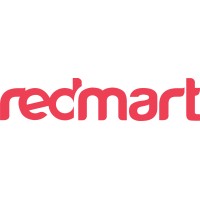
RedMart
RedMart is the supermarket arm of Lazada Group in Singapore, offering an unparalleled selection of quality fresh food, household essentials and premium speciality products with the convenience of scheduled home delivery seven days a week, all year round. To find out more about career opportunities at RedMart, please visit the Lazada LinkedIn page: https://www.linkedin.com/company/lazada






